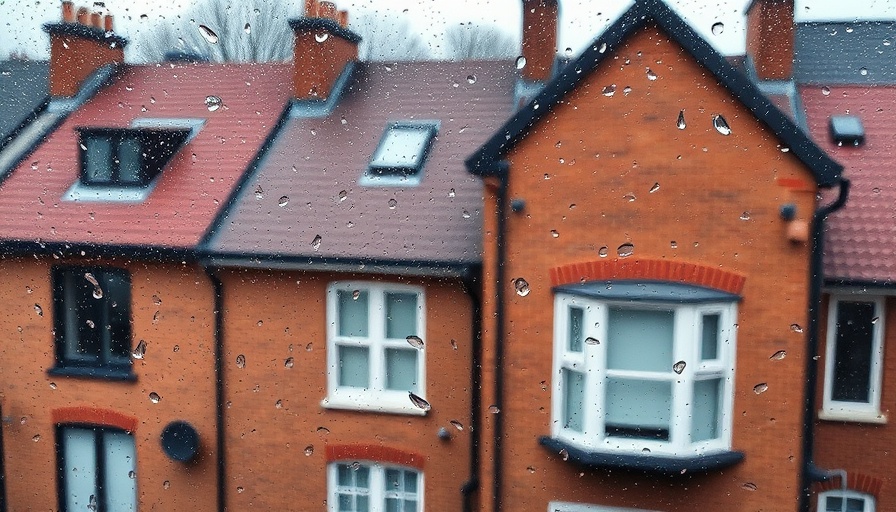
Understanding Bedroom Condensation: What You Need to Know
For many young homeowners in London, the challenge of condensation in bedrooms can feel both common and frustrating. As the temperature drops, you might notice water droplets forming on your windows or even a persistent musty smell that lingers in the air. These alarming signs aren’t just inconvenient; they can lead to more serious problems like health issues, structural damage, and unpleasant living conditions.
What Causes Condensation in Bedrooms?
At its core, condensation occurs when warm, moist air meets cold surfaces. In your bedroom, this typically happens overnight when the heating is turned down and windows are closed, allowing moisture from everyday activities—like breathing or drying clothes—to accumulate. Understanding this phenomenon is key to combating it. When warm air touches cool walls or windows, it cools rapidly, reaching a temperature known as the dew point, leading to those unwanted droplets.
Why Should You Care About Condensation?
Condensation isn't merely an aesthetic issue; it can have significant ramifications. Here are a few reasons why:
- Health Risks: Mold and damp resulting from condensation can aggravate respiratory conditions and allergies, posing serious health risks for those living in the home.
- Structural Damage: Over time, excess moisture can weaken plaster, damage paintwork, and even rot wood, threatening the very fabric of your home.
- Unpleasant Environment: No one wants to awaken to the sight of wet windows or damaged décor. Your bedroom is your sanctuary, and condensation can detract from its comforting ambiance.
- Furniture Damage: Soft furnishings can also suffer, with mold making its home on curtains and upholstery if not addressed early.
Effective Strategies to Combat Bedroom Condensation
The good news is that there are several practical solutions to tackle condensation in your bedroom. Let’s explore them:
Enhance Your Ventilation
One of the most effective methods for preventing condensation is improving ventilation. Without proper airflow, moisture gets trapped indoors. Here are actionable steps you can take:
- Open your windows each morning, even if just for a few minutes, to allow fresh air to circulate.
- Ensure your windows have trickle vents; if they don’t, consider having them installed.
- Avoid blocking air vents in your home to promote uninterrupted airflow.
- Consider installing additional vents or air bricks in your walls to facilitate increased ventilation.
Upgrade Insulation
Since cold surfaces are more prone to condensation, improving your insulation can raise the overall temperature of your home. The following upgrades can make a significant difference:
- Consider upgrading to double or triple glazing for your windows.
- Insulate your loft and walls to minimize heat loss.
- Use thermal curtains or soft furnishings to keep warmth in and make your bedroom more cozily inviting.
Local Perspectives on condensation
London residents are no strangers to the damp winters, and many are seeking solutions beyond mere ventilation or insulation. Community workshops focusing on home maintenance and sustainable living practices are on the rise. By engaging with these local initiatives, you can connect with fellow homeowners who are tackling similar issues, sharing insights and strategies to keep your homes condensation-free.
Long-Term Benefits of Addressing Condensation
Tackling condensation isn't just about immediate relief; it has several long-term benefits as well. Healthy indoor air quality can reduce healthcare costs related to respiratory issues and contribute to a more pleasant living environment. Moreover, by preserving the structural integrity of your home via proactive measures, you are safeguarding your investment for the future. Finally, upgrading your home can enhance property value, a benefit certainly worth considering for homeowners eager to invest in their futures.
Time to Take Action
Don't let condensation compromise your home. Take control by implementing these practical tips, enhancing ventilation and insulation, and proactively engaging with your community. Remember, your bedroom should be a tranquil retreat, not a source of stress. Start today and create the environment you deserve!
 Add Row
Add Row  Add
Add 






Write A Comment